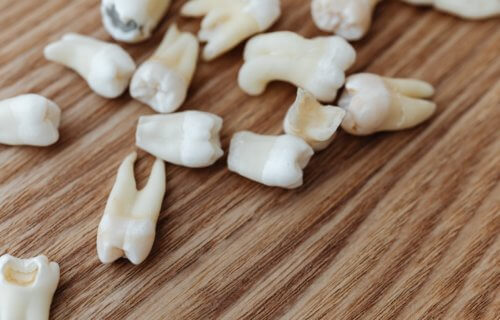NEW YORK — People who start losing their teeth are more likely to develop dementia, a new study warns. Researchers from New York University’s Rory Meyers College of Nursing say that every tooth someone loses increases their risk factor for cognitive impairment later in life.
Luckily, good oral health – including the use of dentures – may protect against cognitive decline, according to researchers. Their findings show that the risk of dementia was less apparent among older adults with dentures, suggesting that timely treatment may protect against dementia.
According to the Centers for Disease Control and Prevention, nearly 13 percent of seniors over 65 years-old have suffered complete tooth loss. Previous studies have discovered a connection between tooth loss and diminished thought processes, with researchers offering a range of possible explanations for this link.
For one, missing teeth can lead to difficulty chewing, which may contribute to nutritional deficiencies and promote changes in the brain. A growing body of research also points to a connection between gum disease – a leading cause of tooth loss – and cognitive decline. Tooth loss may also reflect life-long socio-economic disadvantages that are also risk factors for cognitive decline.
“Given the staggering number of people diagnosed with Alzheimer’s disease and dementia each year, and the opportunity to improve oral health across the lifespan, it’s important to gain a deeper understanding of the connection between poor oral health and cognitive decline,” says study senior author Professor Bei Wu in a media release.
Every single tooth impacts cognitive health
Prof. Wu and her colleagues conducted an analysis using studies of tooth loss and cognitive impairment. The 14 studies included in their analysis involved more than 34,000 adults and 4,689 cases of people with diminished cognitive function.
The results show adults with more tooth loss had a 1.48 times higher risk of developing cognitive impairment and 1.28 times higher risk of receiving a dementia diagnosis. Those findings also took into account other factors which could skew the results.
Moreover, adults missing teeth were more likely to suffer from cognitive impairment if they did not have dentures (23.8%) compared to those with dentures (16.9%). Further analysis revealed that the association between tooth loss and cognitive impairment was “not significant” when participants had dentures.
The researchers also conducted an analysis using a subset of eight studies to determine if there was a “dose-response” association between tooth loss and cognitive impairment. In other words, scientists looked to see if a greater number of missing teeth had a link to a higher risk for cognitive decline.
Their findings, published in JAMDA: The Journal of Post-Acute and Long-Term Care Medicine, confirmed this relationship. Each additional missing tooth resulted in a 1.4 percent increased risk of cognitive impairment and a 1.1 percent increased risk of being diagnosed with dementia.
“This ‘dose-response’ relationship between the number of missing teeth and risk of diminished cognitive function substantially strengthens the evidence linking tooth loss to cognitive impairment, and provides some evidence that tooth loss may predict cognitive decline,” says Xiang Qi, a doctoral candidate at NYU Meyers.
“Our findings underscore the importance of maintaining good oral health and its role in helping to preserve cognitive function,” Prof. Wu concludes.
SWNS writer Stephen Beech contributed to this report.
